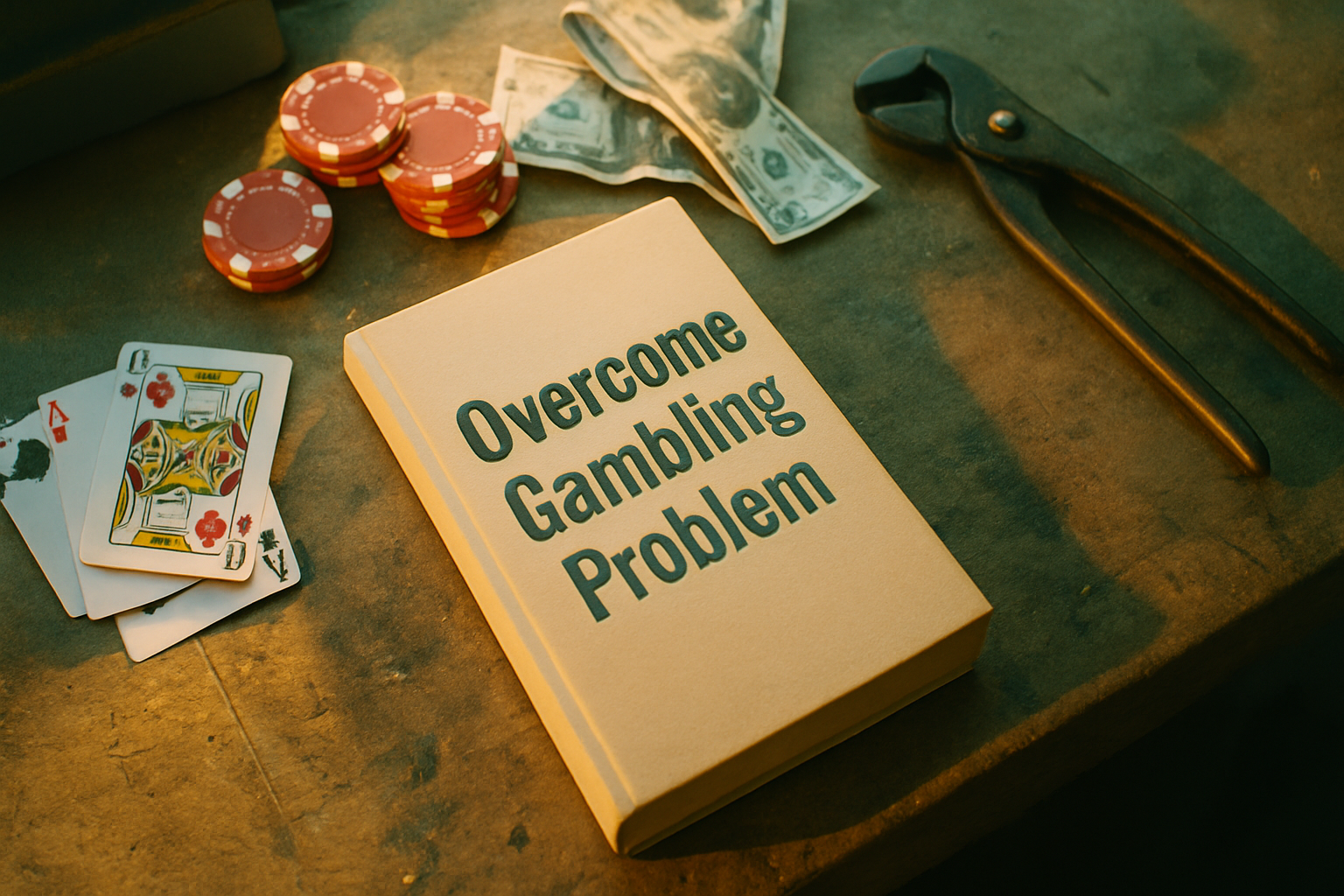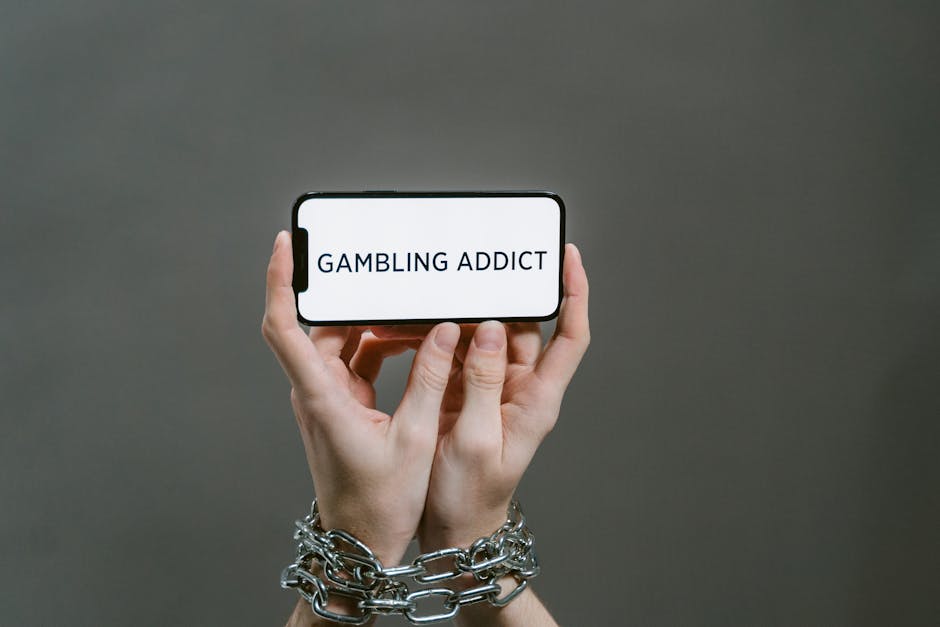Spotting the Signs
Gambling problems often develop quietly, making it hard for family and friends to notice what’s really going on. Recognizing early signs both behavioral and emotional can be the first step toward offering meaningful support.
Behavioral Red Flags
Changes in habits and behavior may signal a deeper problem:
Increased secrecy: Hiding receipts, deleting browser history, or being vague about time spent away from home
Unexplained money issues: Sudden financial struggles, borrowing money frequently, or missing valuables
Mood swings: Uncharacteristic irritability, restlessness, or emotional withdrawal especially after gambling losses
Emotional Indicators to Watch For
It’s not just about actions mood and mental health can reveal a lot:
Guilt or shame: Expressions of regret that don’t lead to behavior change
Anxiety or stress: Constant worrying about money or hiding behavior from others
Denial: Minimizing the impact of gambling or insisting they’re “in control”
When Gambling Crosses the Line
Not all gambling is harmful but it’s important to recognize when it shifts from casual entertainment to compulsive behavior:
It interferes with daily life: Skipping work, neglecting relationships, or avoiding responsibilities
There’s financial harm: Regular losses leading to debt or strained family finances
The behavior escalates: More time, more money, and more risk just to feel the same excitement
If you’re seeing one or more of these signs, trust your instincts it may be time for a conversation or professional guidance.
What Not to Do
Supporting a loved one through a gambling problem requires care and mistakes made with good intentions can often do more harm than good. Avoiding the wrong approaches is just as important as choosing the right ones.
Skip the Shame
Blame and guilt are natural reactions when someone’s gambling has impacted family or finances. But shaming rarely leads to change. In fact, it can cause your loved one to further isolate, deny the issue, or spiral back into their habit.
Don’t use phrases like “You’ve ruined everything” or “You’re so selfish.”
Avoid anger driven conversations, especially during or after gambling losses
Lead with concern, not confrontation
Avoid Financial Rescues Without Limits
While it’s tempting to “clean up the mess” especially when bills are overdue or debts pile up you must do so with caution. Bailing someone out financially without a clear recovery plan might unintentionally enable their cycle.
Help them build a budget, not just cover the losses
Agree to conditions like therapy, support groups, or accountability checkpoints
Consider financial safeguards such as shared accounts or spending limits
Recognize That It’s Not Just About Willpower
Telling someone to “just stop” oversimplifies the issue. Gambling addiction often involves brain chemistry, trauma responses, and deeply rooted habits it’s not a casual behavior one can quit on demand.
Avoid saying “If you really loved us, you’d stop.”
Educate yourself on gambling disorder as a mental health issue
Focus on progress, not perfection
Understanding what not to do is a critical first step toward creating an environment where recovery is truly possible.
Leading with Support, Not Pressure
Helping a loved one struggling with gambling begins with choosing compassion over confrontation. It’s easy to let frustration take over, but how you communicate can make the difference between resistance and receptiveness.
Speak with Care, Not Criticism
It’s important to approach conversations calmly and respectfully. Starting with accusations or judgment can cause your loved one to shut down or become defensive.
Use “I” statements instead of “you” to avoid assigning blame (e.g., “I’m worried about how often you’ve been gambling lately”)
Choose a quiet, private time to talk, without distractions
Focus on how their actions are affecting both them and those around them
Boundaries That Respect Both Sides
Setting boundaries is not the same as issuing ultimatums. Boundaries are meant to protect your well being and maintain healthy dynamics, not punish the other person.
Be clear and specific about what you are and are not willing to tolerate (e.g., you won’t give them money to gamble or cover gambling related debts)
Reaffirm your care while defining limits (e.g., “I care about you, but I can’t continue supporting this behavior”)
Stay consistent with what you communicate, and follow through without guilt
Why Long Term Consistency Beats Short Term Intensity
Showing up consistently through the setbacks and victories is one of the most supportive things you can do. A single dramatic intervention rarely leads to lasting change, but steady encouragement can.
Offer regular check ins or create small routines of support
Celebrate progress, even if it’s small or temporary
Avoid emotional extremes; your calm presence matters most over time
Patience, empathy, and firm boundaries create the safest space for someone to consider change. Support doesn’t mean taking responsibility for their choices it means showing that change is possible without pressure or shame.
Practical Ways to Support Recovery

Helping someone recover from a gambling problem isn’t about control it’s about structure, options, and steady support. Start with what’s proven: therapy and support groups. Professional help offers tools that friends and family can’t always provide. Cognitive behavioral therapy, group accountability, and peer stories give them a safe space to confront the root issues. Recommend it. Normalize it. But don’t force it. The choice to accept help has to be theirs.
Next up: accountability. Encourage open conversations about behavior and goals, but skip the ultimatums. “If you gamble again, I’m done with you” sounds definitive but usually backfires. Instead, set boundaries and stick to them. Clear expectations, calmly stated and followed through that’s where change starts.
Money is another axis to monitor. If you share finances or live together, review your access and process. Separate accounts. Spend limits. Maybe even a trusted third party to oversee funds for a while. It’s not about punishment. It’s about reducing risk while trust rebuilds.
If you’re unsure where to start, this deeper guide breaks it down further: help someone with gambling.
Taking Care of Yourself Too
Supporting someone with a gambling problem can take a serious toll on your own mental and emotional health. While it’s natural to focus your energy on helping your loved one, ignoring your own well being is a fast track to burnout. You can’t pour from an empty cup so self care isn’t selfish, it’s essential.
Navigating Your Own Emotions
Watching someone struggle with gambling can stir up a complex mix of anger, sadness, fear, and confusion. It’s important to acknowledge these emotions rather than suppress them.
Allow yourself to feel upset without guilt
Journal or talk to a trusted friend about your experience
Take breaks when needed distance can provide clarity
Know When to Seek Support for Yourself
You shouldn’t have to manage this alone. Just as your loved one may need a counselor or support group, so might you.
Consider talking to a therapist familiar with addiction or family dynamics
Join support groups like Gam Anon, which focus on helping friends and families of problem gamblers
Explore online communities or forums for shared experiences and advice
Understand Co Dependency and Set Limits
It’s easy to slip into patterns of enabling or co dependence, especially when you’re trying to “hold everything together.”
Recognize if your sense of worth is tied to fixing their problems
Set boundaries around money, emotional support, and time
Remember: caring doesn’t mean controlling
Avoiding Burnout
If you’re exhausted, resentful, or constantly anxious, these are signs you need to step back and recharge.
Schedule time for activities that bring joy and relaxation
Prioritize sleep, nutrition, and movement
Practice saying “no” when your limits are reached
For additional guidance and strategies, read the full family and friends resource guide: help someone with gambling
Hope Is Real
Addiction recovery, especially from gambling, is rarely a straight path. It’s a journey made up of progress, setbacks, and everything in between. That’s why it’s important to approach your loved one’s healing with long term perspective and compassionate patience.
Understand That Relapse Isn’t Failure
Relapse can feel discouraging for both the person struggling and those supporting them but it doesn’t mean all progress is lost.
Relapse is common in recovery and can even offer insight into triggers
Instead of focusing on the setback, help refocus on next steps
Emphasize progress over perfection
Celebrate Small Wins
Big breakthroughs may be rare, but small, steady wins are crucial to lasting change.
Celebrate a week without gambling, attending a meeting, or opening up about struggles
Acknowledge behavioral improvements, even if subtle
Positive reinforcement can help rekindle motivation and self worth
Stay Present Through the Highs and Lows
This process requires staying grounded, patient, and consistently supportive even when it’s tough.
Avoid reacting emotionally to every slip or mood swing
Remind your loved one (and yourself) that recovery isn’t linear
Focus on consistent support rather than dramatic interventions
Being present, patient, and persistent sends a powerful message: you believe in their ability to heal even when they don’t.
Seeing someone you care about struggle is never easy. But offering hope, without pressure, can be one of the most transformative things you do.



